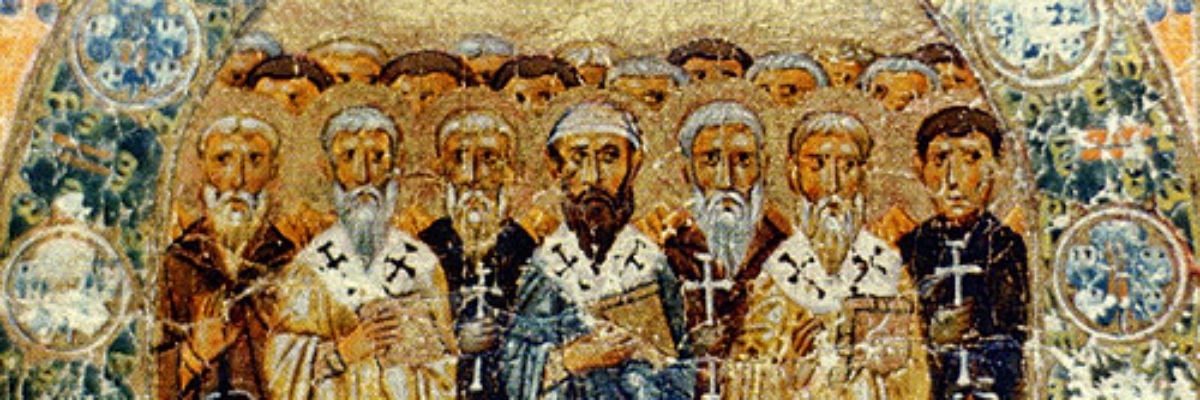
Homosexual activists sometimes claim that, for the bulk of Church history, homosexual acts were not condemned. In fact, the term homosexual did not even exist until the nineteenth century, so Church condemnation of such acts is really only that recent.
In an earlier post I discussed the contention that Jesus was silent on the issue of homosexual acts, but what about his followers? Many activists claim that although Paul’s writings condemn activity that today is considered homosexual, he stood alone in this regard. They attempt to dismiss much of his teaching, painting him as a rebel of sorts who also believed that women were inferior to men. To support their claims, they cite Scripture passages such as 1 Corinthians 14:33-35:
As in all the churches of the saints, the women should keep silence in the churches. For they are not permitted to speak, but should be subordinate, as even the law says. If there is anything they desire to know, let them ask their husbands at home. For it is shameful for a woman to speak in church.
Activists claim that this “misogynistic” Pauline teaching was not repeated by others, and it would fall out of favor as Jesus’ broad message of equality prevailed. Similarly, they claim, homosexual bigotry fell away as well, only to be revived by the modern Church: Historical Christianity, they say, simply did not condemn homosexual acts.
It is true that Paul’s instructions concerning women in churches were later revised, but what activists fail to recognize in this is a distinction between doctrine and discipline. Some of Paul’s instructions were merely disciplinary in nature, intended only for a limited time and place, and they would, indeed, change later in Church history. (For more on this, see Is It a Doctrine or a Discipline?) So, were his teachings concerning homosexual acts merely Pauline discipline as well?
First, it was not only Paul in the New Testament who explicitly condemned homosexual acts. Peter and Jude did so as well. (For more on this, see Homosexuality.) Additionally, as our Catholic Answers tract Early Teachings on Homosexuality documents, Church Fathers in every century of the early Church also condemned homosexual acts (using terms such as pederasty, effeminacy, and unseemliness). Here are just a few examples:
Didache (A.D. 70):
“You shall not commit murder, you shall not commit adultery, you shall not commit pederasty.”
Clement of Alexandria (A.D. 193):
“[C]onversation about deeds of wickedness is appropriately termed filthy [shameful] speaking, as talk about adultery and pederasty and the like.”
Novatian (A.D. 250):
“. . . effeminate manners are disapproved.”
Basil the Great (A.D. 367):
“He who is guilty of unseemliness with males will be under discipline for the same time as adulterers.”
John Chrysostom (A.D. 391):
“All of these affections [in Rom. 1:26–27] . . . were vile, but chiefly the mad lust after males.”
Augustine (A.D. 400):
“[T]hose shameful acts against nature, such as were committed in Sodom, ought everywhere and always to be detested and punished.”
Of course, countless more examples spanning the history of the Church could be cited. Clearly, this was and still is a doctrinal, not a merely disciplinary, matter. So don’t be fooled by radical claims of homosexual activists who attempt to rewrite Christian history. Though terminology has varied over the centuries, it is an undeniable fact that the Church has always condemned homosexual acts.



